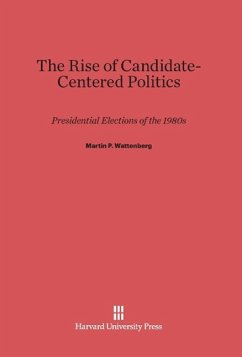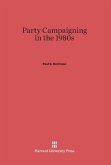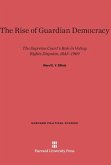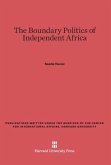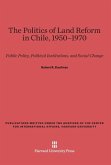Every presidential election since 1964 has been won by the candidate backed by the most united party; yet as party unity has become more important to voting decisions, it has also become increasingly difficult to achieve. In his latest book, Martin Wattenberg offers an in-depth interpretation of the presidential elections of the 1980s, illuminating current theories of political behavior and how they operate in today's candidate-centered politics.
Wattenberg investigates the impact that political parties' declining relevance has had on presidential politics. As the parties' ability to polarize opinion weakened and voters were set politically adrift, the candidates themselves had to fill the power vacuum. Interestingly, as the candidates have become more prominent, their popularity has spiraled downward. Wattenberg's national survey data debunks the notion of Reagan as the "teflon president;' demonstrating that many negative judgments stuck to Reagan's publicimage throughout the 1980s, particularly the criticisms of his conservative policies.
The author's intricate analysis shows that many people were torn between candidates whose policies they preferred and those who they thought would produce the best results, and these contradictory attitudes were primarily resolved in favor of Reagan and Bush.
This book is not only the successor volume to the author's widely used book on American parties, it is also a controversial and thought-provoking commentary on American parties, politics, and representative government.
Wattenberg investigates the impact that political parties' declining relevance has had on presidential politics. As the parties' ability to polarize opinion weakened and voters were set politically adrift, the candidates themselves had to fill the power vacuum. Interestingly, as the candidates have become more prominent, their popularity has spiraled downward. Wattenberg's national survey data debunks the notion of Reagan as the "teflon president;' demonstrating that many negative judgments stuck to Reagan's publicimage throughout the 1980s, particularly the criticisms of his conservative policies.
The author's intricate analysis shows that many people were torn between candidates whose policies they preferred and those who they thought would produce the best results, and these contradictory attitudes were primarily resolved in favor of Reagan and Bush.
This book is not only the successor volume to the author's widely used book on American parties, it is also a controversial and thought-provoking commentary on American parties, politics, and representative government.
Like Wattenberg's Decline of American Political Parties, this work is a clearly presented analysis of findings from survey research. It contributes significantly to a scholarly understanding of American politics and thus interests readers well beyond the ranks of specialists in the study of voting behavior...The book nicely builds on the findings of Wattenberg's earlier study
This is an interesting and well-written book with a definite point of view. Wattenberg does a fine job of utilizing diverse data sources to construct a highly plausible argument...The presentation of arguments and data analysis is very skillful; the chapters build upon each other very effectively
It is a genuine pleasure to read a book as excellent in all respects as Martin Wattenberg's. It contains a wealth of fascinating material, clearly and soundly analyzed, and makes significant contributions both to our understanding of politics in the 1980s and to the methodology by which we find things out. It is original and, in many areas, path-breaking...The author comes right to the point, without repetition and with scarcely a wasted word.
Wattenberg expands upon the themes of his first book, The Decline of American Political Parties, in which he asserted that more Americans than ever before were taking a 'neutral' stance toward the Democratic and Republican parties. In this new work he describes the effects of political neutrality: the rise of candidate-centered politics...Wattenberg discovers that since 1968 Democratic and Republican presidential candidates have suffered declines in their overall approval ratings. This is especially true for Ronald Reagan. Wattenberg explodes the myth that the 'Great Communicator' was especially popular with his fellow countrymen...Today, the American dislike of parties and their nominees means that many voters cast their ballots based on the 'goodness/badness' of the times--or what Wattenberg calls 'performance based voting'...Highly recommended.
Provides information and analysis that makes it a significant contribution to the professional literature on contemporary American electoral politics.
This is an interesting and well-written book with a definite point of view. Wattenberg does a fine job of utilizing diverse data sources to construct a highly plausible argument...The presentation of arguments and data analysis is very skillful; the chapters build upon each other very effectively
It is a genuine pleasure to read a book as excellent in all respects as Martin Wattenberg's. It contains a wealth of fascinating material, clearly and soundly analyzed, and makes significant contributions both to our understanding of politics in the 1980s and to the methodology by which we find things out. It is original and, in many areas, path-breaking...The author comes right to the point, without repetition and with scarcely a wasted word.
Wattenberg expands upon the themes of his first book, The Decline of American Political Parties, in which he asserted that more Americans than ever before were taking a 'neutral' stance toward the Democratic and Republican parties. In this new work he describes the effects of political neutrality: the rise of candidate-centered politics...Wattenberg discovers that since 1968 Democratic and Republican presidential candidates have suffered declines in their overall approval ratings. This is especially true for Ronald Reagan. Wattenberg explodes the myth that the 'Great Communicator' was especially popular with his fellow countrymen...Today, the American dislike of parties and their nominees means that many voters cast their ballots based on the 'goodness/badness' of the times--or what Wattenberg calls 'performance based voting'...Highly recommended.
Provides information and analysis that makes it a significant contribution to the professional literature on contemporary American electoral politics.

